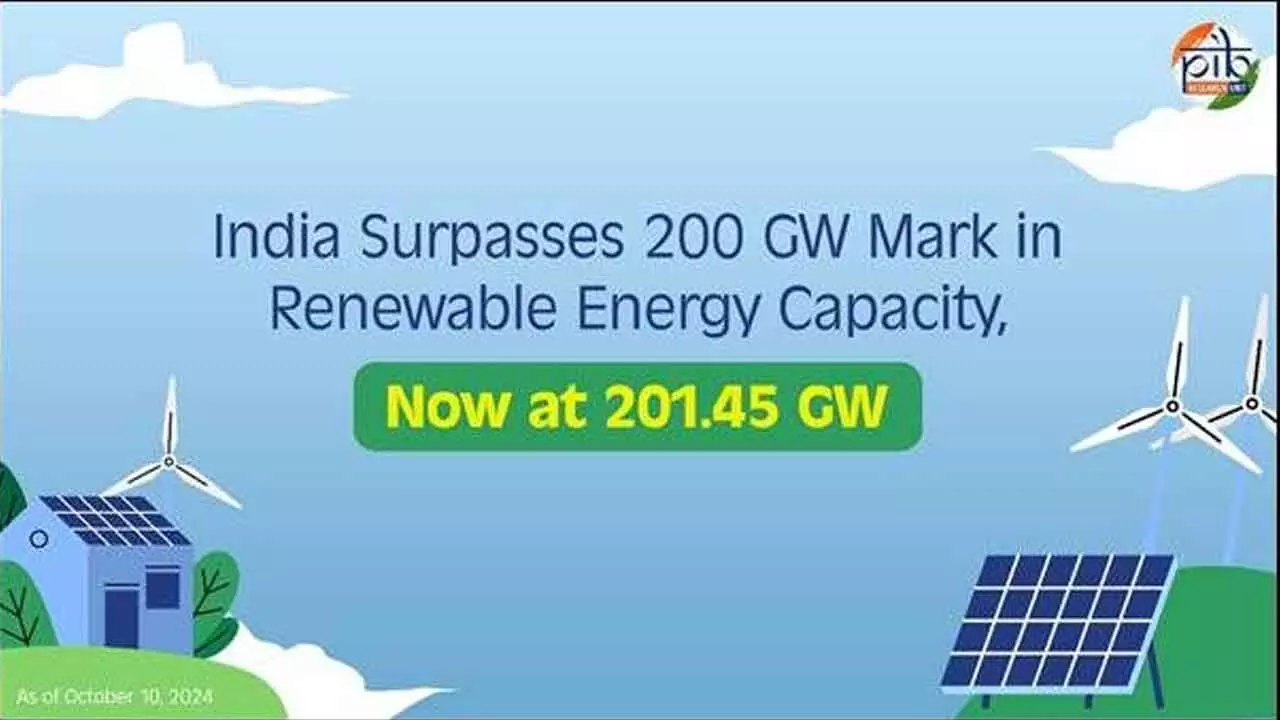Investment-Driven Budget Can Spell Boon For India’s Renewable Energy Goals
The emphasis should be on energy storage, distributed renewable energy, e-mobility and digitalization of the energy sector
Investment-Driven Budget Can Spell Boon For India’s Renewable Energy Goals

Resources must also be directed towards fostering innovation, research & development, and upskilling and reskilling programs, considering India’s burgeoning startup ecosystem and the backbone of our economy-the MSMEs
With pressing climate targets in sight, the Union Budget 2025-26 could offer the much-needed push for the country’s sustainable development. India needs INR 30 trillion to achieve its 500 GW renewable energy goal.
Even as investments in renewable energy are estimated to quadruple to INR 19 trillion between FY25 and FY30, a considerable gap remains in financing. By allocating funds to key measures, this year’s budget could propel the nation’s green growth towards renewable energy targets, establishing India as a leader in climate action. The budget will also be vital for updating and financing the Nationally Determined Contributions (NDCs), due this year, with more ambitious targets.
Going forward, we need provisions with greater emphasis on energy storage, distributed renewable energy (DRE), e-mobility, and digitalization of the energy sector.
Increased allocation of resources and policy support in these sectors will be integral to achieving the goal of 500 GW of renewable energy capacity by 2030 and the 2070 net-zero target. A significant development is that the country is making promising progress in this direction.
India’s renewable energy push:
India is emerging as a leader in renewable energy deployment. Between December 2023 and December 2024, the nation’s total renewable energy installed capacity increased from 180.80 GW to 209.44 GW, marking a rise of 15.84 per cent.
Giving fillip to this progress is government support in the form of forward-looking policies, incentives, and cross-sectoral collaborations. Implementation of policies such as the Pradhan Mantri Kisan Urja Suraksha evam Utthan Mahabhiyan (PM-KUSUM), the PM-Surya Ghar: Muft Bijli Yojana, and the Production-Linked Incentive (PLI) Scheme for high-efficiency solar PV modules continue to increase adoption of renewable energy, enabling a just and inclusive transition.
While the progress is striking, there is much that still needs to be done to enable a people-centric energy transition and deliver on the ambitious national and global targets we have committed to. Currently, the country is ranked 63rd out of 120 nations in the World Economic Forum’s Energy Transition Index. The factors that can help take the leap to the next leg of the energy transition are catalytic finance, innovative policy reforms and collaborations across sectors and diverse stakeholders.
Key expectations from Budget 2025:
In the recent deliberations, under the auspices of Global Energy Alliance for People and Planet (GEAPP), energy storage solutions, e-mobility, and digitalization were among the key strategies that were identified to pave the path to 500 GW renewable energy capacity. The hopes to amplify the momentum hinge on the upcoming budget, which can ensure dedicated provisions for the respective sectors.
To scale its renewable energy capacity, India needs about 47 GW of energy storage by 2032. The global imperative for the same was highlighted by the Global Energy Storage and Grids Pledge made during the 29th Conference of Parties (COP29). The budget will set the tone for the speed at which energy storage infrastructure is developed and integrated with renewable energy initiatives.
Resources must also be directed towards fostering innovation, research & development, and upskilling and reskilling programs, considering India’s burgeoning startup ecosystem and the backbone of our economy- micro, small and medium-sized enterprises (MSMEs). Initiatives like GEAPP’s Energy Transitions Innovation Challenge (ENTICE) are already making strides in this direction by mobilizing resources and expertise towards innovators pioneering green energy solutions.
Another emerging trend that the budget can build on is the evolution of digital and Artificial Intelligence (AI) technologies. India’s digital economy is projected to reach $one trillion by 2028, making it a key driver of the nation’s economic progress.
Digitalizing the energy sector, alongside provisions for decentralized energy and integration of energy storage, through AI, smart metres and data-driven solutions can significantly enhance grid reliability, power supply and energy availability.
Continued policy support and green financing will be integral to augmenting these measures. A comprehensive energy transition policy will not only aid in outlining a clear roadmap for decarbonizing hard-to-abate sectors and diversifying the energy mix, but also facilitate ease of doing business. Simplification of regulatory frameworks will spur innovation and entrepreneurship, thereby inviting greater private sector participation. Added support from the PLI scheme and suitable tax incentives will ensure we maneuver cost challenges and catalyse sustainable innovation.
The future of green energy in India:
The budget is a critical catalyst in India’s energy future—augmenting existing schemes and enabling new ones to accelerate the transition and strengthen India’s energy security. It can boost economic growth in a way that aligns with its vision for sustainable growth. In addition to achieving national ambitions, India must uphold its global commitments, including the submission of updated NDCs this year.
The ensuing budget could be a step towards bridging a critical financing gap and strengthening a holistic ecosystem for supporting the nation’s transition to green, reliable, accessible, and affordable energy.
India’s success could present a replicable model for emerging economies across the globe.
(The writer is Vice-President- India, Global Energy Alliance for People and Planet)

